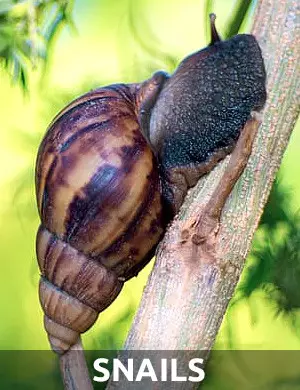
Snails and Slugs on Cannabis
Last updated: 8 June 2021
Content
- Snails and slugs on cannabis 101
- What damage do snails and slugs do to plants?
- Signs of weed damage
- Ineffective and harmful solutions
- How to get rid of snails and slugs
- Setting traps
- Capture and release
- Nematodes against snails and slugs
- Avoiding future snail or slug invasions
- Copper wires
- Border your garden with salt
- Companion plants
- Animal allies
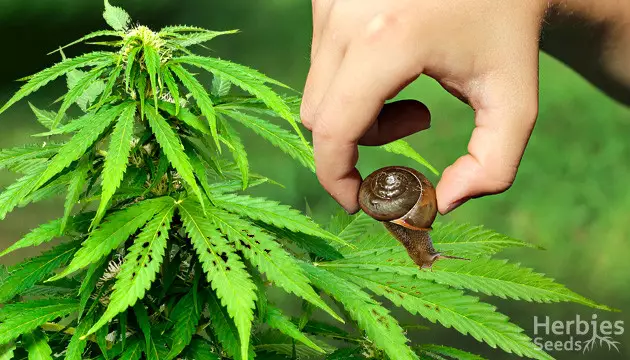
Growing cannabis outdoors is a fun, rewarding experience that can be accompanied by unexpected obstacles depending on the surrounding environment, climate, and ecosystem. Sometimes outdoor marijuana gardens can face challenges that require human intervention, lest the plants wither and die. One such problem found in the garden is slimy, unwelcome guests: slugs and snails. Knowing how to protect plants from snails and slugs will help keep your plants happy and healthy all the way until harvest time.
Snails and Slugs on Cannabis: Know Your Enemy
Slugs and snails are both gastropods that are part of the Mollusca phylum family, which itself also includes bivalves and cephalopods. These creatures are invertebrates, meaning they don’t have a spine. Interestingly enough, snails and slugs are usually also hermaphrodites, and during intercourse (which can last 12 hours!) will inseminate each other.

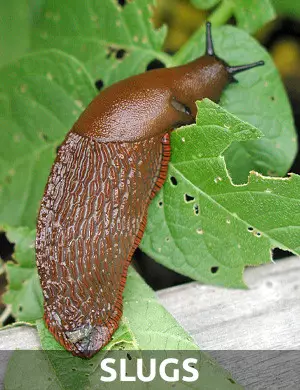
The main distinction between the two is the presence or lack of a shell. Snails are, obviously, well-known for their protective shells. Slugs, lacking a shell or bones, are capable of squeezing into tight, hard-to-reach places. Slugs are certainly very sneaky intruders, which can have disastrous results if they get to your cannabis plants!
How Snails and Slugs Can Harm Your Cannabis Plants
Unless you catch them before they make it to your plants, these pesky gastropods can do some serious damage. Sure, snails and slugs are well-known for moving very slowly. However, they tend to stage their attacks under the cover of darkness, meaning that in a single night, they can completely ruin a crop. They also don’t discriminate according to the maturity of plants, and are happy to munch on tiny seedlings as well as cannabis plants only days from harvest. If not caught in time, the plants will not survive the onslaught of hungry mouths!
Signs of Weed Damage from Snails and Slugs
If you’re lucky, you can catch and rectify the damage before it’s too late. Signs of damage that require urgent attention include evidence that snails or slugs have already been snacking on your crops. They leave obvious damage in the shape of irregular holes with scalloped edges, likely to be found in the tender, easy-to-reach lower leaves of cannabis plants.
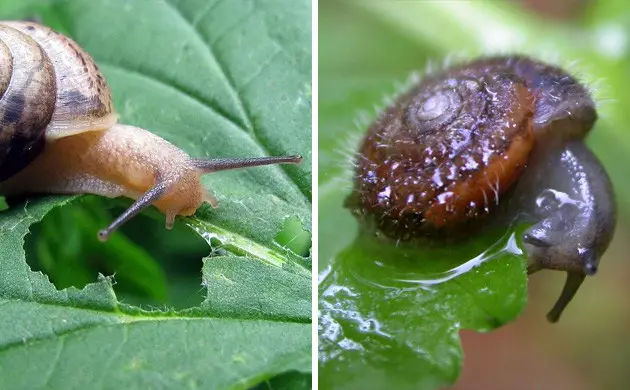
Finding sticky, slimy trails near plants and right on them is another telltale sign that there are snails or slugs eating plants in your garden. As soon as you lay your eyes on snail or slug slime on your weed, it’s time to take action! We’ll walk you through the dos and don’ts of eradicating a snail and slug infestation on cannabis safely and effectively.
How NOT to Fight Snails and Slugs
It’s understandable that you might completely freak out after your pot plants have been ravaged by slugs or snails. However, even though tensions might be running dangerously high, you don’t have to reach for deadly solutions. Above all else, you should avoid using poisons, pesticides, and harmful chemicals.
Using eco-friendly and humane methods of eradication will not only keep your garden happy and healthy, but is also a better option for the health of yourself, pets, and children. Cannabis should never be sprayed with such treatments anyway, since it’s intended for consumption. So, keep a level head, take a few deep breaths, and read further to find out what keeps slugs away from plants so that such a horrific incident never occurs again!
How to Get Rid of Snails and Slugs on Cannabis Organically & Safely
There are plenty of ways to deal with these slimy invaders without resorting to chemical warfare. Don’t bother with poisons and pesticides – instead, opt for these greener methods to get rid of snails organically! Some may require a bit more time and attention than others, but it’s absolutely worth the effort to maintain a healthy, pest-free cannabis garden.
Setting Traps
One way to decrease the number of snails and slugs in your garden while also keeping them away from your marijuana plants is to set some traps for them! It turns out that these sneaky little mollusks love beer, and you can use that to your advantage if you do too!
All it takes is a jar or glass and some brew. Take your container and bury it into the soil as a sort of pitfall trap for the pests. Fill it part way up with beer, and you’ll be amazed at how both snails and slugs just can’t resist the stuff! Check the jar regularly to empty it of victims and replace it with new beer. This method is surprisingly effective for how easy it is!
Capture and Release
For gardeners who extend pacificism to creepy crawlies, it may not sit well to send those little fellas to a drunken end. If you’ve got the time and patience, simply removing snails and slugs from the garden is an effective way of cutting down the population. Grab a bucket and go hunting everywhere they love to hide – anywhere cool, shady, and a bit damp like under logs, rocks, and garden tiles. From there, release the snails and slugs at least a few hundred meters from your garden. Even better is if you have a creek or wooded area nearby.
You can even attract the slugs and snails in your garden to certain places in order to make removal easier. If you intentionally set out hiding places for them, like broken pots and bricks with holes in them, it will make it a much more streamlined process to collect them later!
Nematodes Against Snails and Slugs
You can always call on your own army of tiny critters to protect your garden from an invasion of snails and slugs, as well as to prevent their damage in the first place. We’re talking about nematodes, which are microorganisms that are naturally found in soil. Nematodes are a type of roundworm that acts as a parasite to slugs and snails, yet are harmless to humans and pets. They don’t only discourage the presence of snails and slugs in the garden; they’re also super effective against several other pests like fungus gnats and weevils.
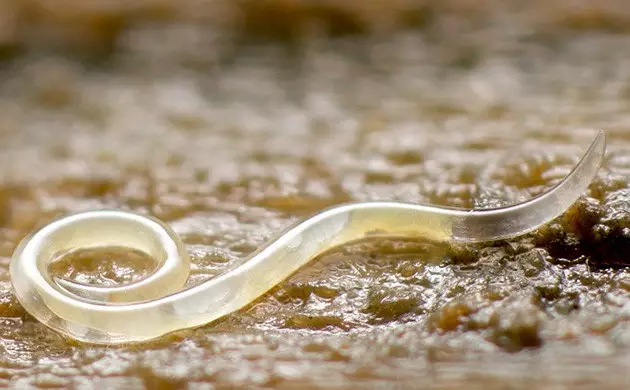
Avoiding Future Snail or Slug Invasions
To avoid further victimization of your precious cannabis plants, we’ve got a few more tips on how to protect your grow from future invasions. Specifically, we don’t recommend any poisons or pesticides, and promote natural methods of prevention that are not harmful to the environment, animals, or humans.
Copper Wires (Snails and Slugs are Afraid of Them!)
Fencing your garden off isn’t going to do much to keep pests at bay… unless you use this gardening secret: copper! By encircling your plants with exposed copper wire or copper tape, you create a boundary that is uncrossable for snails and slugs. They refuse to cross any exposed copper because they receive a small electric shock when they make contact with the metal. These materials are affordable and easy to find in most gardening and hardware stores, plus you can reuse them next year!
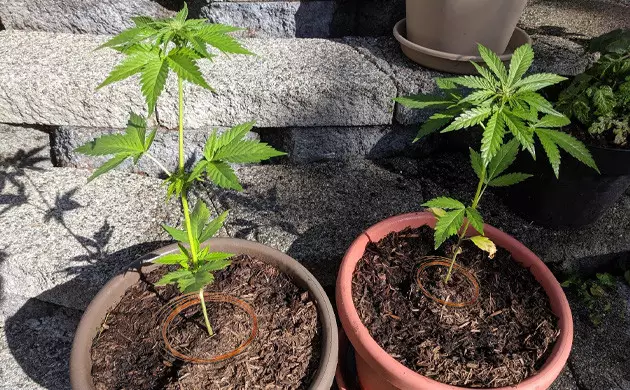
Border Your Garden with Salt
You probably already know that salt is deadly to slugs and snails. When they make contact with the substance, it causes rapid dehydration that is lethal to them. No need to go around with a salt shaker in the garden, though. You could simply draw lines of salt to create an impenetrable border around your plants. Be careful to never use salt on the soil in your garden or plant pots. Otherwise, it will upset the natural balance and pH of the soil, leading to dead plants!
Companion Plants
If slugs and snails are threatening to destroy your marijuana plants, why not distract them with some other greenery? There are two ways to go with this: plants that are distracting, and others that deter the slimy fiends.
Crops like lettuce and cabbage are remarkably easy to grow, and will tantalize slugs and snails away from growing weed plants. They are generally much more interested in vegetables and will engorge themselves on veggies until they’re too full to bother with the weed!
There are also plants that will make snails and slugs turn up their noses and wiggle off in the opposite direction. Garlic works extremely well as a deterrent for these slimy pests, as do herbs such as mint, sage, and lavender. What better way to keep snails off plants than growing herbs you can then use in the kitchen?
Animal Allies
Last but definitely not least, you could employ the help of some furry or feathery friends! Animal allies like hedgehogs and ducks are formidable predators to slugs and snails. Those sneaky, slimy critters won’t stand a chance!
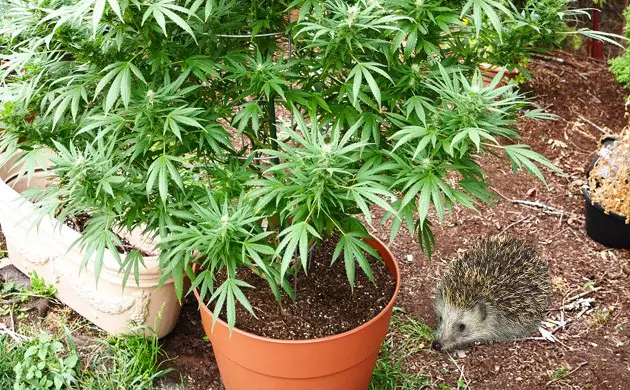
Hedgehogs, which love to snack on these pesky mollusks, can be found in the wild in Europe, Asia, Africa, and New Zealand. If you’re lucky enough to live somewhere these little cuties run rampant, it would be incredibly advantageous if one moved into your garden!
We also love the idea of keeping some ducks or chickens to control the snail and slug population. Ducks are a wonderful addition to any garden for multiple reasons. They love to snack away all sorts of pests that would usually try to destroy your plants. Plus, fresh eggs!
Protect Plants from Slugs and Snails, Organically and Forever
We’re all too familiar with the tragic sight of slug-ravaged cannabis plants. It’s truly heartbreaking to put so much time and effort into a crop, only to have it ruined in the night. When you protect plants from slugs and snails naturally, you’ll find that the results are better and safer when it comes to consumption later!
Herbies Head Shop expressly refuses to support the use, production, or supply of illegal substances. For more details read our Legal Disclaimer.

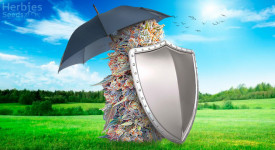

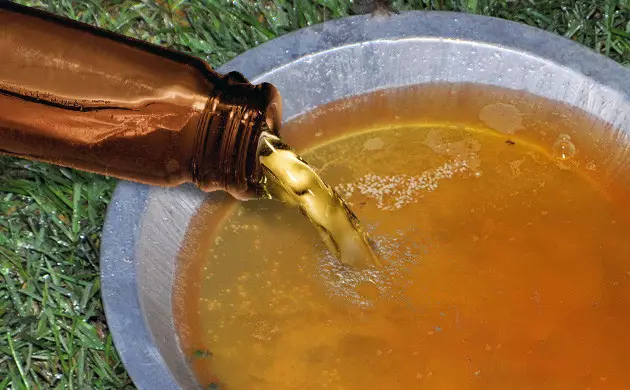
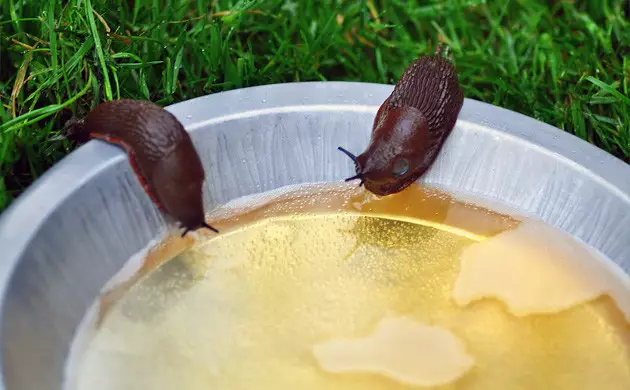
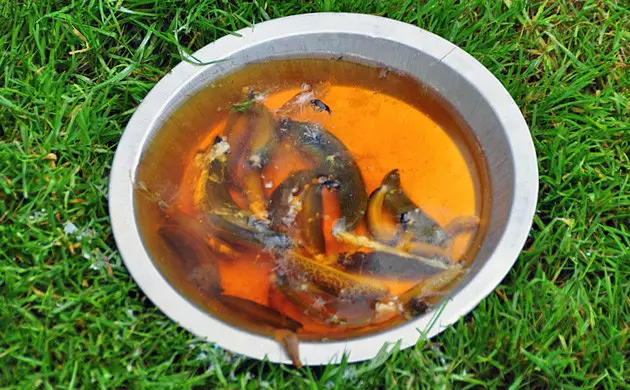





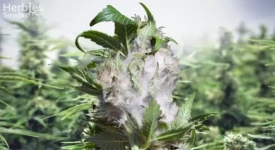

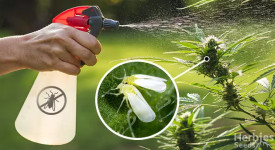
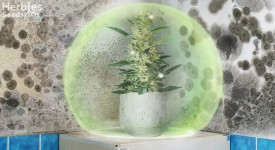
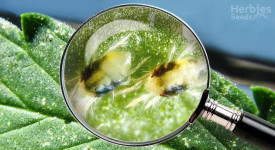



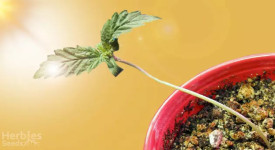


Thank you for leaving a comment for us!
Your feedback will be posted shortly after our moderator checks it.
Please note that we don’t publish reviews that: